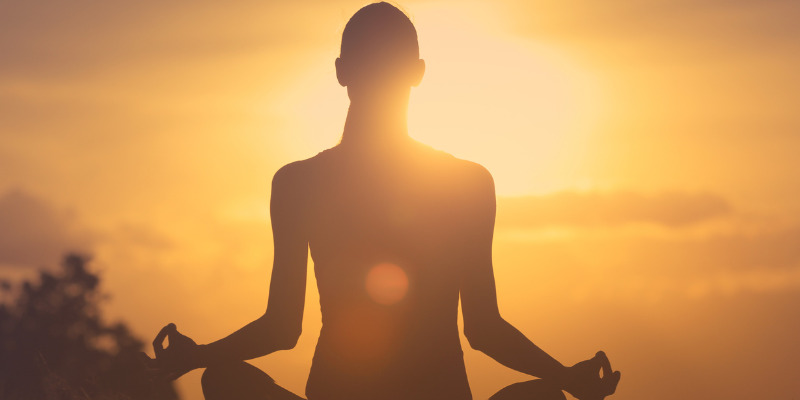
How To Have A Peaceful Mind & Peaceful Life
- December 1, 2023
- Mental Wellness Tips
- 0 Comments
A Peaceful Mind Brings Inner Strength, Confidence And Well-being
Table of Contents
Ever heard about the idea of having a calm mind for a better life? Sounds good, right? Well, in this blog, let’s keep things simple and explore how having a peaceful mind can make a real difference in your life. It’s like a superhero for your body, fighting off stress and keeping sickness at bay.
As we go through this blog, you’ll see that your thoughts have a big say in how you feel. And guess what? By the end, you’ll know some easy ways to make your peaceful mind even stronger. Just keep scrolling, and let’s make understanding and enhancing your calm mind a breeze!
What is a Peaceful Mind?
A peaceful mind refers to a state of mental tranquility and calmness, free from the disruptive influence of stress, anxiety, and chaotic thoughts.
Having a peaceful mind isn’t just about feeling good when things are going well. It’s a deeper sense of calm that doesn’t depend on what’s happening around you.
Sometimes, we try to find peace by controlling everything or relying on things like politics to make us feel safe. But when we connect our well-being to the unpredictable world, it often makes us feel stressed.
Real peace of mind doesn’t rely on what’s happening outside. It’s a choice to stay calm, even when life gets tough. Imagine it like being a person who chooses to live a calm life.
But here’s the trick: to be peaceful, you also need to be ready for tough times. It’s like having strong metal rods (practices) in the concrete of your life to keep it steady.
So, let’s talk about some simple practices to be a more peaceful person. These practices are like the strong rods that help you stay strong when life brings challenges, because challenges are a part of life, and it’s not about if they come, but when they do.
The Best Practices For Becoming a Person of Peace
Becoming a person of peace involves adopting practices that bring calmness and balance to your life. Here are some simple and effective practices to help you cultivate inner peace:
1. Deep Breathing

When life gets overwhelming, your breathing tends to become shallow and quick, triggering your body’s stress response. Deep breathing, or diaphragmatic breathing, becomes your go-to antidote by engaging the diaphragm, the muscle at the base of your lungs. It’s like a signal to your body to hit the pause button, ushering in a wave of calmness and dialing down the stress.
Tips for Your Daily Routine:
- Start Your Day Right: Begin your morning with a few minutes of deep breathing to set a positive tone for the day. Inhale slowly, hold for a count of three, and exhale gradually.
- Midday Recharge: Take short breaks during your day just for you. A few moments of deep breathing can refresh your mind, boosting your productivity.
- Wind Down Before Bed: Incorporate deep breathing into your bedtime routine. It signals to your body that it’s time to unwind, ensuring you get a more restful sleep.
- Combat Stress Instantly: When faced with a challenging moment, give yourself a moment for deep breaths. It’s your quick and effective tool to regain composure.
2. Mindfulness Meditation

Mindfulness meditation has ancient roots, originating from Buddhist contemplative practices over 2,500 years ago.
The teachings of mindfulness can be traced back to the historical Buddha, Siddhartha Gautama, who emphasized the importance of cultivating awareness and presence in each moment.
Since then, mindfulness meditation has become a mainstream phenomenon, integrated into various fields, including psychology, medicine, education, and corporate wellness programs.
Many scientific studies have highlighted its positive effects on mental health, stress reduction, and overall well-being, contributing to its popularity.
Since then, mindfulness meditation has become a mainstream phenomenon, integrated into various fields, including psychology, medicine, education, and corporate wellness programs.
Today, many people use mindfulness meditation for mental health and overall well-being. You can also try it with Close your eyes and focus on your breath or a specific point of attention.
Spend a few minutes each day in mindfulness meditation. Focus on your breath or observe your thoughts without judgment. This practice enhances self-awareness and promotes inner peace.
3. Gratitude Journaling

Gratitude Journaling, the simple act of jotting down things you’re grateful for each day, may seem like just another task in our already busy lives.
However, let me share with you why, amidst life’s hustle and bustle, gratitude journaling can be a valuable practice.
You might think, “Do I really need to write it down?” The answer lies in the process itself.
Writing down your gratitudes solidifies them, creating a tangible record of the positive elements in your life. It’s a way of anchoring the intangible into something you can revisit.
In those moments when life feels chaotic, flipping through the pages of your gratitude journal can be a grounding experience—a testament to the richness that exists even in the midst of busyness.
What more? Gratitude Journaling can infuse your routine with a mindful pause. It need not be an elaborate exercise; a few sentences or bullet points can suffice. Practicing it every day allows you to appreciate the good, even the smallest things that happen around you.
4. Nature Connection: Spend time outdoors

Spending time outdoors is a delightful way to get a boost in inner peace and overall well-being. You can experience a reduction in stress and a more tranquil state of mind by immersing yourself in nature.
If you engage in outdoor activities, you can enjoy both the physical benefits of exercise and the mental benefits of being surrounded by the sights and sounds of the natural world. Some outdoor pursuits that make you feel invigorated include hiking, cycling, or simply taking a leisurely stroll in a park.
For example, a peaceful hike through the woods or a serene walk along the beach can provide moments of solitude and reflection, enhancing your connection with nature.
5. Setting Boundaries
Setting boundaries is of utmost importance because it serves as a protective measure for your well-being. Everyone possesses opinions, and the tendency to pass judgment is ubiquitous.
If you consistently pay attention to what others say without setting boundaries, you risk allowing external influences to dictate your actions and emotions, potentially leading to stress and discomfort.
Building boundaries is a crucial step to safeguard your mental and emotional space. This means, you create a protective shield around your personal boundaries. This proactive approach not only shields you from unnecessary stress but also fosters healthier relationships, as others learn to respect your autonomy.
So, how do you go about setting boundaries? The key is to clearly communicate your needs and limits. You have to understand your priorities, recognize your emotional thresholds, and express them assertively.
Whether it’s in your personal or professional life, effective communication about your boundaries empowers you to navigate interactions with confidence and authenticity.
6. Eat Well

Take care of yourself by eating good food. Just like getting enough sleep, the things you eat play a big role in how you feel. There’s no strict separation between “mental health” and “physical health” – it’s all connected. Food directly affects your mood and how well your body works and recovers.
If you eat a lot of sugary and processed foods, it can make you feel more anxious. So, be kind to your body and choose foods that are good for you.
Think of your health as a whole package that includes both your body and your mind. Foods like fruits, veggies, whole grains, and lean proteins give your body what it needs to work well. And guess what? They also help your mind stay balanced and happy.
So, when you eat, think about giving your body the good stuff. It’s a simple way to take care of yourself and feel your best.
7. Listen to Music

Enjoy the magic of music—it’s like medicine for your soul. Whether you’re into lively ’80s hair metal (I love it!) or chill lo-fi beats for a relaxed vibe, find a playlist or album that makes you happy and turn up the volume.
Pick songs that speak to you, ones that make you feel good or remind you of special times. Music is more than just something to listen to; it can make you feel emotions, remember things, and connect with others.
Create your own collection of favorite tunes, whether they’re old classics or the latest hits. Music is like a language everyone understands, and it can make your days brighter and better.
So, when you need a pick-me-up or just want to relax, let the music play. It’s a simple way to make each day a bit more joyful and peaceful.
8. Do Something Creative

Tap into your creative side—it’s like a superpower for feeling less stressed and more at peace. Remember what Brené Brown said: “Unused creativity is not benign . . . It metastasizes into resentment, grief, heartbreak.” So, dust off that guitar, start a small business, plant some flowers, or cook a meal for your neighbors.
If you need a break from everyday problem-solving, pick up a good book and let your mind wander into a different world. Reading not only helps you relax but also makes your brain more creative.
Creativity is not just for artists. You can try drawing, crafting, playing an instrument, or anything else that feels fun. It’s not about being perfect; it’s about enjoying the process.
9. Sleep
Make sure you get a good seven to nine hours of sleep every night—it’s super important. Getiing a good sleep is like a magic trick that helps with lots of health stuff, especially stress and anxiety.
When you get enough sleep, it’s not just a break for your body; it’s like a superhero boost for your overall well-being. During sleep, your body fixes itself, sorts out memories, and keeps everything running smoothly.
Think of sleep as the foundation of your day. It’s not just about feeling less tired; it’s about giving your body and mind the chance to recharge. Getting the right amount of sleep helps you handle stress better and keeps your emotions in check.
So, aim for those seven to nine hours of shut-eye. It’s a simple but powerful way to take care of yourself, ensuring you wake up ready to face the day with a fresh and positive outlook.
Conclusion
In summary, when we feel stressed or uneasy, it’s like a little warning sign that something’s not right. But the cool part is, if we pay attention to what’s bothering us, we can make some important changes that last.
So, here’s the exciting news: by figuring out and dealing with the main cause of our stress, we can make our lives more peaceful and happy. If you want to know how, check out Mental Mapguide blog to learn, and see the positive ways it can make your life better.






